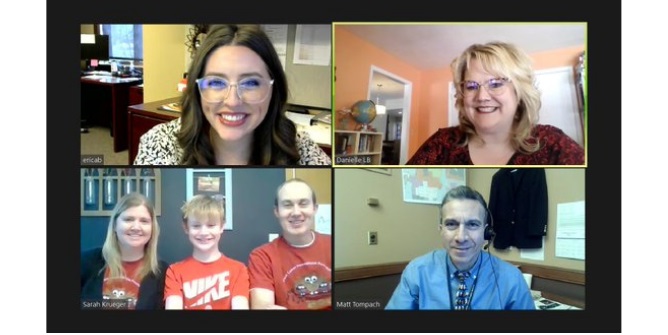
GLHF Met Virtually with Elected Officials on Wisconsin Legislative Day, January 26
Thank you to all of the state representatives and legislators who met with GLHF advocates for Wisconsin Legislative Day on January 26! Constituents shared their stories with 23 legislative offices – giving us a rare opportunity to educate elected officials about bleeding disorders and other issues that are important to our community. This year, we asked our elected officials to support three primary issues:
Support of SB 215 or AB 744. This bill ensures that the copay assistance programs patients use to afford their medications count toward their out-of-pocket costs, while giving Wisconsin insurers plan design flexibility.
Currently 10 out of 14 Wisconsin health care plans include a copay accumulator policy. When co-pay assistance is not allowed, many patients cannot afford their treatments and stop taking them or reduce the prescribed dosage. This often leads to complications and has unintended consequences (i.e., increased ER visits, joint bleeds/damage, and missed days from work/school) that harm patients and increase overall costs. In addition, this is likely to have a disproportionate impact on individuals from vulnerable populations, people of color, and those with lower incomes and poorer health.
Support SB 689 or AB 744. This bill establishes a Rare Disease Advisory Council in the Department of Health Services. This council will provide recommendations to both the governor and the legislature regarding issues relating to rare diseases.
The Rare Disease Advisory Council will improve the lives of Wisconsin’s rare disease community. With input from medical experts, patients, and caregivers, it will identify and address the challenges facing patients with rare diseases – such as delays in diagnosis, lack of medical specialists and/or limited access to therapies and medications. It will advise on research, best practices, access to care and treatment.
Maintain funding for the Wisconsin Chronic Disease Program so that our most vulnerable population has access to clotting factor as a last resort.
Through the Wisconsin Chronic Disease Program, the State of Wisconsin provides reimbursement for the replacement clotting factor concentrates used to treat bleeding episodes after all other payers have paid. Without support from the Wisconsin Chronic Disease Program, patients in this highly vulnerable population (many of whom are Amish) would not have access to effective diagnosis, evaluation, and treatment. The Wisconsin Chronic Disease Program is a proven, long-standing program that has been critical to individuals living with hemophilia, chronic renal disease, and cystic fibrosis for more than 30 years.
Contact Karin at Email: kkoppen@glhf.org for information.